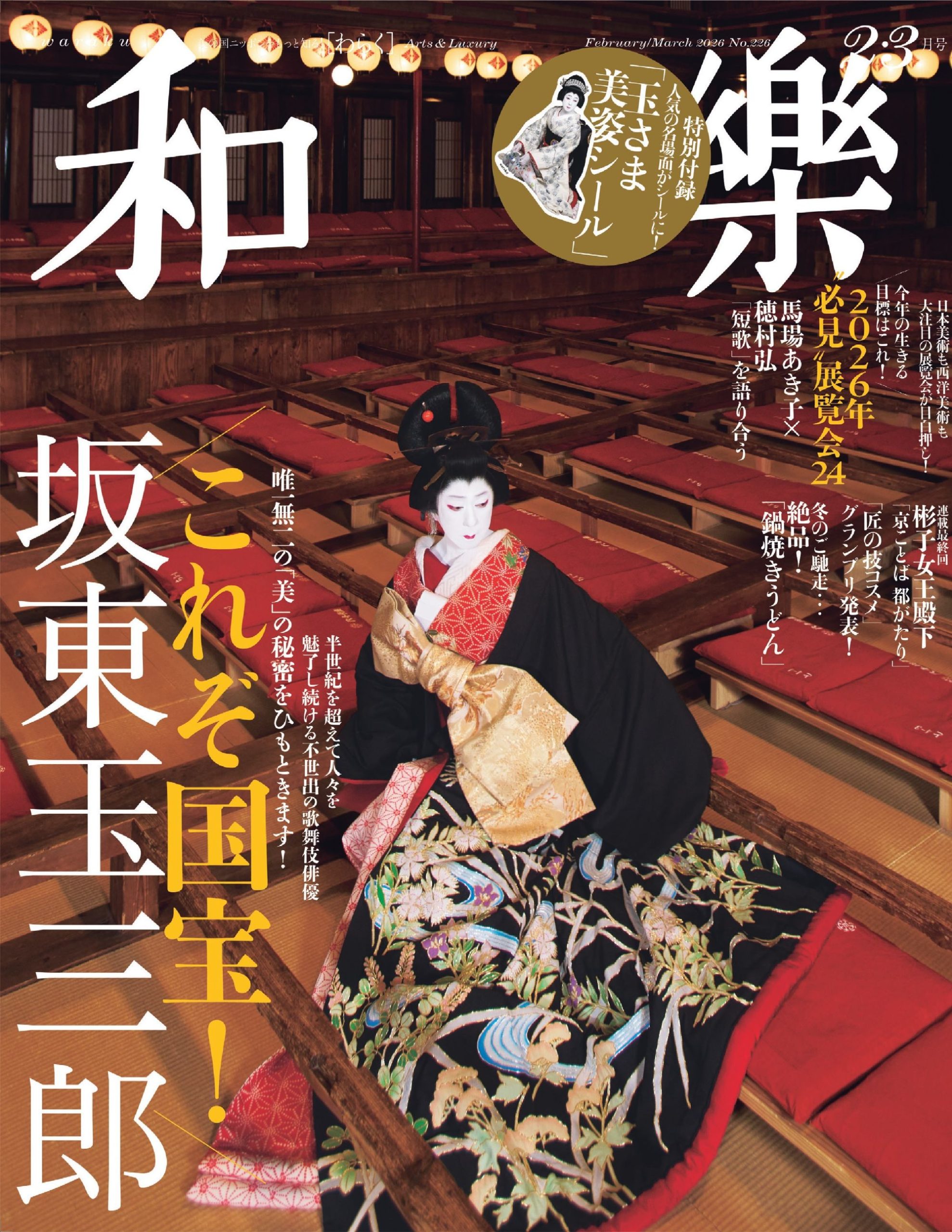The Arrival of “Hokusai Manga”
From around the mid 19th century, the name “Hokusai,” an artist coming from what was viewed to be a mysterious island country of the East—Japan, spread among the artists and pundits of Europe and had a powerful impact.
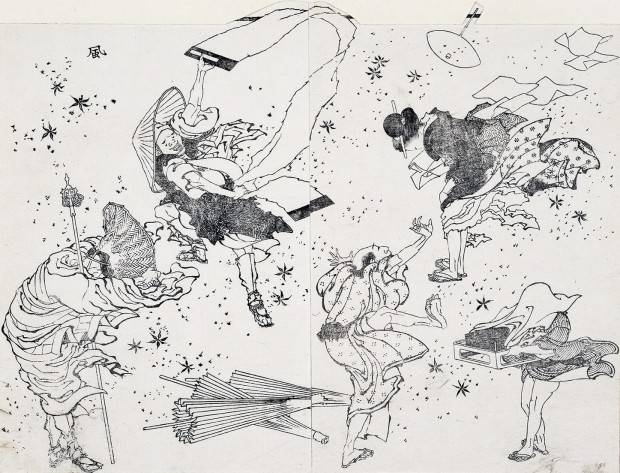 “Wind” from “Hokusai Manga, Volume 12,” 1814, Urakami Collection.
“Wind” from “Hokusai Manga, Volume 12,” 1814, Urakami Collection.
The source of this phenomenon was 『北斎漫画』 (“Hokusai Manga,” a collection of sketches drawn by Katsushika Hokusai as art manuals for his students), which were secretly brought over from Japan in the last days of the Tokugawa shogunate. The detailed and unique drawings and designs of the universe as depicted by the unknown artist Hokusai, were of a style never before seen by the European artists, and had an unfathomable influence on artists who were searching for new directions to take.
Hokusai’s name spread among the general public when his 浮世絵 (ukiyo-e, a genre of commoner art from the 17th to 19th century) 錦絵 (nishiki-e, polychrome woodblock prints) were exhibited at the International Exhibition of 1867 in Paris. In the eyes of the Europeans of that time, the use of vivid and bright colors in ukiyo-e, which was nonexistent in oil paintings in the West, made this style both innovative and unique, and put it at the cutting-edge. It rocked the art world in France and the rest of Europe. The name Hokusai thus became synonymous with ukiyo-e art and artists.
Hokusai’s effect on Western artists
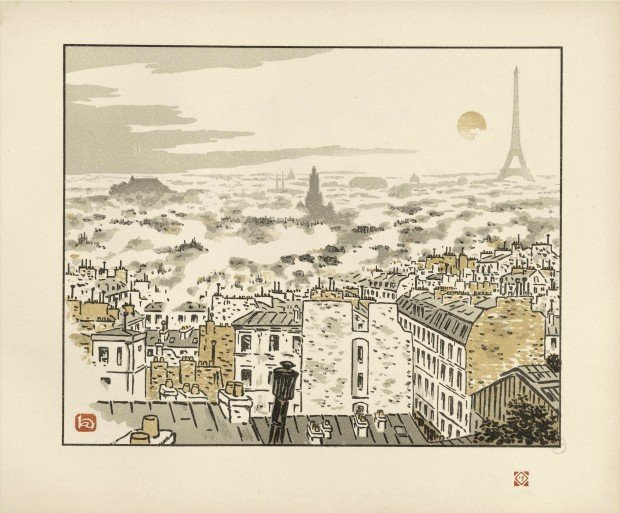 Henri Rivière, “From the Rue des Abbesses” from the series, Thirty-Six Views of the Eiffel Tower. Images: Roger-Viollet (AFLO)
Henri Rivière, “From the Rue des Abbesses” from the series, Thirty-Six Views of the Eiffel Tower. Images: Roger-Viollet (AFLO)
The artists most influenced by this trend were the Impressionists and artists of surrounding styles who played a significant role in the modernization of Western art. Famed artists from Manet, Degas, Monet, and Cézanne, to van Gogh and Gauguin, were fascinated by Hokusai and ukiyo-e. The Japonism boom truly swept the world. It’s no exaggeration to say that without Hokusai, modern art would not have developed in the West.
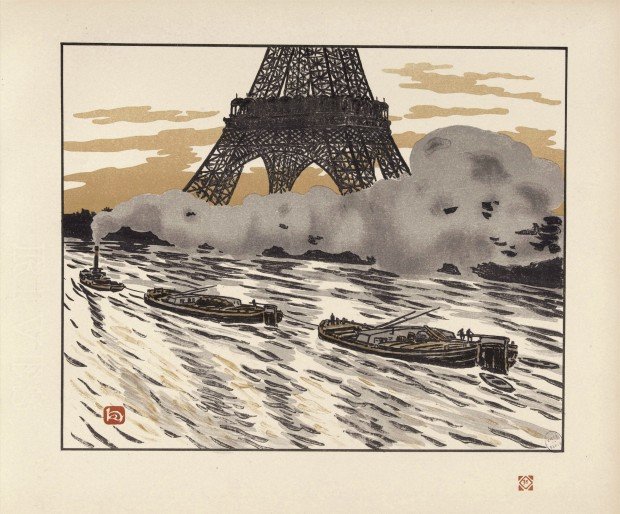 Henri Rivière, “The Riverboat” from the series, Thirty-six Views of the Eiffel Tower. Images: Roger-Viollet (AFLO)
Henri Rivière, “The Riverboat” from the series, Thirty-six Views of the Eiffel Tower. Images: Roger-Viollet (AFLO)
Three scenes from the Thirty-six Views of the Eiffel Tower by Henri Rivière
Inspired by Hokusai’s Thirty-six Views of Mount Fuji, painter and lithograph artist Henri Rivière produced the Thirty-six Views of the Eiffel Tower—depicting different scenes of Paris centering on the Eiffel Tower—drawn in the style of ukiyo-e. The influence of ukiyo-e can be strongly seen in the composition and expression.
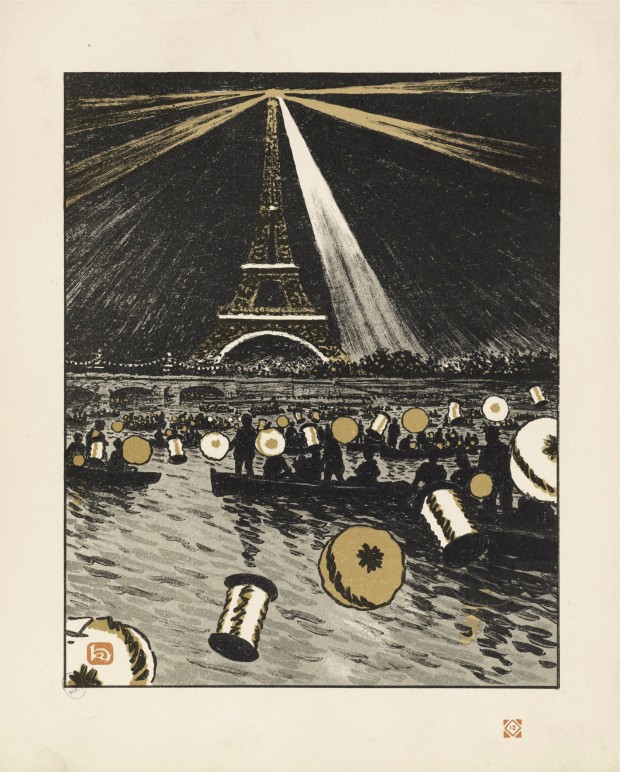 Henri Rivière, “Festivities on the Seine, July 14.” Image: Roger-Viollet (AFLO)
Henri Rivière, “Festivities on the Seine, July 14.” Image: Roger-Viollet (AFLO)




